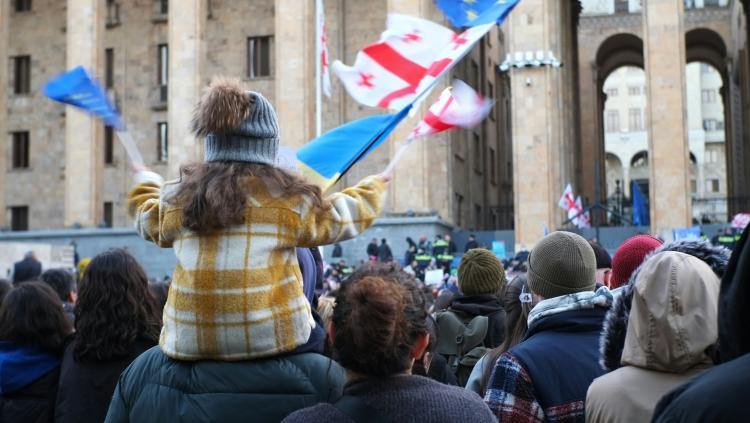
On April 3, 2024, the ruling Georgian Dream party reintroduced the draft law on "Transparency of Foreign Influence". CSOs and media outlets consider the reintroduction of the law as having direct negative impact on Georgia's aspirations for EU membership. The European Union voiced strong objections to the proposed law, emphasising its incompatibility with EU values and standards. They called on Georgia to uphold its commitment to the democratic values and “unconditionally withdraw” such legislation. Similarly, the President of Georgia said that this move is “sabotaging” Georgia’s European future. On April 9, 2024 the Open Government Partnership (OGP) a issued recommendations to the government to prepare a plan how it will address the concerns raised by civil society on the shrinking civic space in Georgia, including:
- The withdrawal of current or proposed legislation that discriminates, stigmatises, or hinders the freedom of expression and association of CSOs, media representatives and vulnerable groups.
- Safeguard freedoms of expression and assembly, the space for civil society and their ability to operate without physical and verbal attacks.
Last year's attempt to adopt the "Foreign Agents" law led to widespread public outrage and sparked large protests. Civil society viewed the proposed legislation as a direct threat to civic liberties and further harming civil society. At the time, the Georgian Dream party withdrew the bill in response to the negative public reaction.
What's new about this draft law?
The draft law is identical to the 2023 version, which proposed the creation of a register of ‘agents of foreign influence’ to include CSOs who receive at least 20% of their annual revenue from sources from abroad. CSOs would have been required to submit annual financial documentation to the authorities, with heavy fines imposed for non-compliance. The law was also perceived as problematic because the word ‘agent’ carries a negative connotation in the Georgian context. For more information, see the in-depth analysis of the law.
The only difference in the current draft law is the change of the term used – CSOs receiving funding are called "implementing organisation of foreign power interests", instead of “foreign agent” although the meaning is the same. This term still labels CSOs, advocacy groups, and independent media outlets, making them vulnerable to targeting, thus weakening democratic safeguards and accountability mechanisms. Previous analyses highlight that such a law violates international standards, including freedom of association and the EU's principle of free movement of capital. The stigmatisation, administrative burden and fines would likely decrease civil society's ability to seek funding and operate freely.
